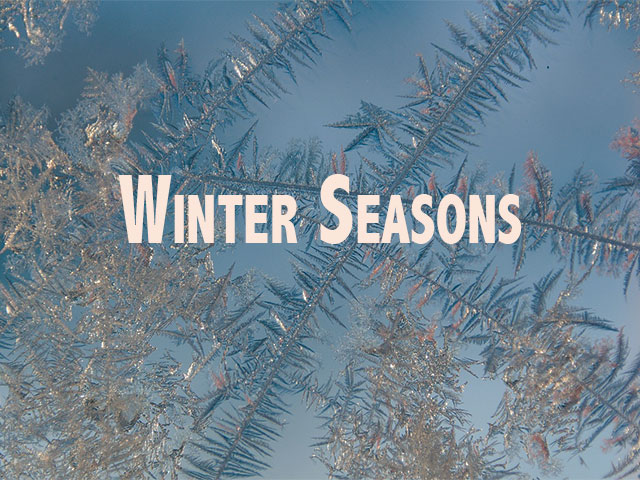Winter Seasons
From TABLETALK
by Kara Dedert
Each winter, the vibrant flowers and lush landscape outside the back window transform into a sober, muted palette. Trees become stark sketches of brown against the white snow, while the deep greens of spruces and pines jut into the endless gray skies above. Even the sounds change. The cacophony of late-summer cicadas and tree frogs fades, replaced by stillness and quiet. Food becomes scarce for animals, their efforts focused on survival. Fields lie empty and still, as leaves and plants decompose and disappear beneath barren trees.
Wintering seasons are not confined to nature. We, too, experience personal winters ushered in by sickness, loss, difficult transitions, or failure. Regardless of the cause, these seasons share a common thread: something that once flourished has ended. A new set of circumstances redefines our days, filling them with uncertainty, waiting, and adjustments in rhythms, relationships, and responsibilities.
Wintering seasons seem like a contradiction in a world chasing perpetual summers. The pursuit of happiness, the race to relevance, and the demands of life keep us moving, scrolling, meeting, reading, consuming, and producing at a relentless pace. But when life grinds to a halt, it’s surprising how fast the world moves on. It is painful to feel set aside, disoriented by a new reality, slogging through grief, wondering how this season arrived and when—or if—it will end.
They say that the soil needs a good freeze now and then. Cold temperatures help trees grow stronger root systems, increasing their hardiness. Harmful insects, weeds, and fungi die off in the cold. The freeze gives the soil a rest period, improving its health and drainage. The cold breaks the dormancy of plants, generating new life in the spring. Even the decomposing of plants and leaves is purposeful, restoring nutrients to the soil. What seems like a season of inactivity is actually one of restoration for the earth, animals, and plants.
We’re tempted to view winter seasons as low points in our lives—seasons to avoid, skip over, bury in our memory, and keep hidden from others. But in God’s economy, they are vital to our formation and growth in Christ. In seasons when we have little to offer, we are most ready to receive. When the world becomes quiet, the voice of the Lord is more clear. Beneath the still blankets of sorrow, shame, or confusion is a call to active perseverance, repentance, and rest in Christ. This works life in us.
We often want to share mountaintop stories of faith, but Paul testifies that it’s when the outward man is painfully wasting away that the inward man is renewed and strengthened. If Christ died for us when we were without strength, He will not abandon us in our lowest points. Instead, He purifies us, prunes us, and works life in us even as we struggle, lament, and fret. Remember: even as the leaves fall and snow covers the ground, the promise of spring is present with buds already in place, waiting to burst with life again in the spring.
Kara Dedert serves a private family foundation and writes regularly at Think Twice: Everyday Life with Gospel Perspective.
She and her husband Darryl live in Grand Rapids, Michigan with their five children.


Recent Comments